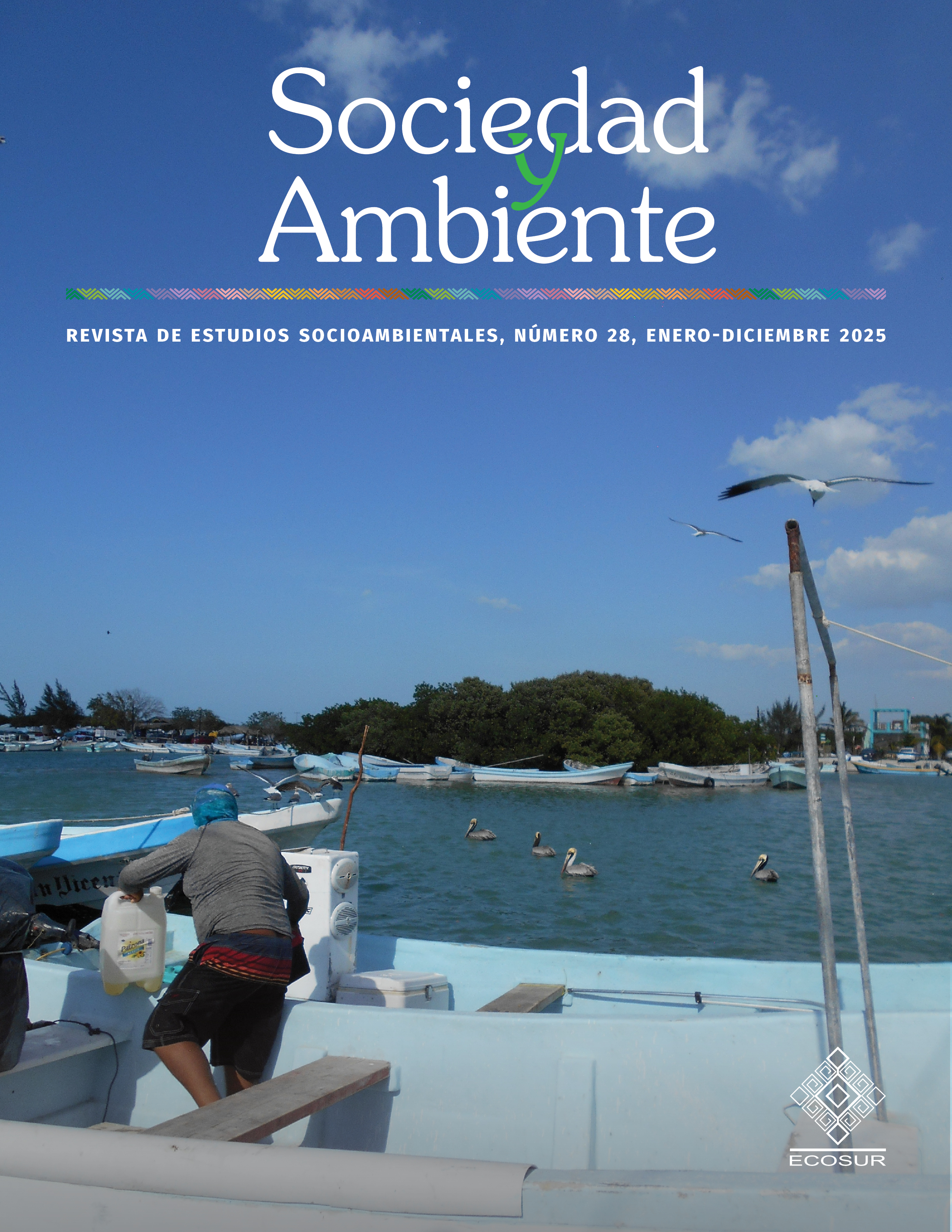Abstract
The emergence of modern environmentalism can be identified with the debates promoted during the Stockholm Summit (1972). The environmental institutionalizing issue process at the international level gives that year a founding milestone. During that period, a school of thought established itself as a benchmark within environmentalism: neo-Malthusianism. Fifty years later, its influence remains significant, mainly because it is not recognized as such but adopted as a tacit agreement among multiple trends within environmentalism that we can observe in various aspects, among which we will discuss the following: i) the dissociation between humanity and nature, ii) the physical-natural character of the "limits" of nature, and iii) the methodologies and instruments for environmental analysis. This essay draws on secondary sources, such as texts by some leading environmentalists, official documents, and public statements by environmental organizations (associated with the topics analyzed). These sources highlight the influence that neo-Malthusian ideology still has on environmental thought.
References
Barney, Gerald O. (1988). Global 2000. The Report to the president. Washington D.C., EUA: Seven Lock Press, 51 pp. https://www.cartercenter.org/resources/pdfs/pdf-archive/global2000reporttothepresident--enteringthe21stcentury-01011991.pdf
Bellamy Foster, John (2022). Capitalism in the Anthropocene: Ecological Ruin or Ecological Revolution. Nueva York, EUA: Monthly Review Press, 576 pp.
Bellamy Foster, John (2023). “Planned Degrowth: Ecosocialism and Sustainable Human Development - An Introduction”. Monthly Review, 75(3), pp. 1-29. https://doi.org/10.14452/MR-075-03-2023-07_1
Bonasera, Jacopo (2022). “‘Green’ Malthus? A Bibliographical Itinerary between Neo-Malthusianism and Environmentalism”. Storicamente, 18, pp. 1-22. https://storicamente.org/bonasera_green_malthus
Brand, Ulrich y Acosta, Alberto (2017). Salidas del laberinto capitalista. Decrecimiento y postextractivismo. Buenos Aires, Argentina: Fundación Rosa Luxemburgo y Tinta Limón, 224 pp. https://www.rosalux.org.ec/pdfs/Libro-Salidas-del-Laberinto.pdf
CNUMAD (Conferencia de las Naciones Unidas sobre el Medio Ambiente y el Desarrollo) (1989). Resoluciones aprobadas sobre la base de los informes de la Segunda Comisión. Conferencia de las Naciones Unidas sobre el Medio Ambiente y el Desarrollo. https://documents.un.org/doc/resolution/gen/nr0/053/89/pdf/nr005389.pdf
Crutzen, Paul J. (2002). “Geology of Mankind”. Nature, 415, 23. https://doi.org/10.1038/415023a
Daly, Herman E. (1991). Steady-State Economics. Washington D.C., EUA: Island Press, 287 pp. http://pombo.free.fr/daly1991.pdf
Ehrlich, Paul y Ehrlich, Anne (1993). La explosión demográfica. El principal problema ecológico. Barcelona, España: Editorial Salvat, 355 pp.
Estenssoro Saavedra, Fernando (2014). Historia del debate ambiental en la política mundial. 1945-1992. La perspectiva latinoamericana. Buenos Aires, Argentina: Biblos, 202 pp.
FAO (Organización de las Naciones Unidas para la Alimentación y la Agricultura) (2006). Informe de Políticas No. 2. Seguridad alimentaria. Dirección de Economía Agrícola y del Desarrollo. https://www.congreso.gob.pe/Docs/comisiones2016/Agraria/files/expedientepl137/seguridadalimentariapoliticas.pdf
Global Footprint Network (2025). “Datos y metodología”. Global Footprint Network. https://www.footprintnetwork.org/resources/data/
González, Fernando (2021a). “Marxism as a Tool for Uncovering Hegemonic Discourses on Nature”. Human Geography, 15(1), pp. 25-32. https://doi.org/10.1177/19427786211054813
González, Fernando (2021b). “Seguridad Alimentaria”. En José Muzlera y Alejandra Salomón (eds.), Diccionario del Agro Iberoamericano. Buenos Aires, Argentina: Teseo Press, 1290 pp. https://www.teseopress.com/diccionarioagro/
González, Fernando (26 de abril 2020). “Pandemia, ecofascismo y alternativas para la humanidad”. Coordinadora Latinoamericana de Organizaciones del Campo y Alianza biodiversidad. https://www.biodiversidadla.org/Documentos/Pandemia-ecofascismo-y-alternativas-para-la-humanidad
Hardin, Garrett (1968). “The Tragedy of the Commons”. Science, 162(3859), pp. 1243-1248.
Harvey, David (2001]). Espacios del capital. Hacia una geografía crítica. Madrid: Akal, 448 pp.
Harvey, David (2014). Diecisiete contradicciones y el fin del capitalismo. Madrid, España: Traficantes de Sueños, 294 pp. https://traficantes.net/sites/default/files/pdfs/Diecisiete%20contradicciones%20-%20Traficantes%20de%20Sueños.pdf
Huffington Post (18 de septiembre de 2019). “La ONU constata que fracasa la lucha contra el cambio climático”. Huffington Post. https://www.huffingtonpost.es/entry/la-onu-constata-que-fracasa-la-lucha-contra-el-cambio-climatico_es_5d825284e4b0957256afcbc9.html
Kallis, Giorgos (2019). Limits: Why Malthus Was Wrong and Why Environmentalists Should Care. California, EUA: Stanford University Press, 168 pp.
Latouche, Serge (2006). La apuesta por el decrecimiento. Barcelona, Italia: Icaria, 280 pp.
Lovelock, James (2006). La venganza de la Tierra. Santiago de Chile, Chile: Planeta, 249 pp.
Malthus, Thomas (1970). Primer ensayo sobre la población. Madrid, España: Alianza.
Martinez Alier, Joan (2008). “Decrecimiento sostenible– sustainable degrowth”. First International Conference on Economic De-growth for Ecological Sustainability and Social Equity. http://base.socioeco.org/docs/martinez-alier_j_degrowth_paris_april_2008_paper.pdf
Meadows, Dennis; Meadows, Donella; Randers, Jorgen, y Behrens, William W. (1982). Los límites del crecimiento. Ciudad de México: Fondo de Cultura Económica, 253 pp.
Merchant, Emily (2021). Building the Population Bomb. Nueva York, EUA: Oxford University Press, 312 pp.
Moore, Jason W. (2015). El capitalismo en la trama de la vida. Ecología y acumulación de capital. Madrid, España: Traficantes de Sueños, 351 pp. https://traficantes.net/sites/default/files/pdfs/PC_22_MOORE_web.pdf
Osborn, Fairfield (1948). Our Plundered Planet. Boston, EUA: Little, Brown and Company, 217 pp. https://archive.org/details/dli.ernet.29002/page/n5/mode/2up
Robertson, Thomas (2012). The Malthusian Moment: Global Population Growth and the Birth of American Environmentalism. Nueva Jersey, EUA: Rutgers University Press, 316 pp.
Rockström, Johan; Steffen, Will; Noone, Kevin; Persson, Asa; Stuart Chapin III, F.; Lambin, Eric F.; Lenton, Timothy F.; Scheffer, Marten; Folke, Carl; Schellnhuber, Hans Joachim; Nykvist, Björn; de Witt, Cynthia A.; Hughes, Terry; van der Leeuw, Sander; Rodhe, Henning; Sörlin, Sverker; Snyder, Peter K.; Costanza, Robert; Svedin, Uno; Falkenmark, Malin; Karlberg, Louise; Corell, Robert W.; Fabry, Victoria J.; Hansen, James; Walker, Brian; Liverman, Diana; Richardson, Katherine; Crutzen, Paul, y Foley, Jonathan A. (2009). “A Safe Operating Space for Humanity”. Nature, 461, pp. 472-475. https://doi.org/10.1038/461472a
Ross, Eric B. (1998). The Malthus Factor: Poverty, Politics and Population in Capitalist Development. Nueva York, EUA: Zed Books, 272 pp.
Sayre, Nathan (2012). “Carrying Capacity”. En Robin Kundis Craig; John Copeland Nagle; Bruce Pardy; Oswald J. Schmitz y William K. Smith (eds.). Berkshire Encyclopedia of Sustainability 5/10: Ecosystem Management and Sustainability. Berkshire, EUA: Berkshire Publishing Group LLC, pp. 54-58.
UNFPA (Fondo de Población de las Naciones Unidas) (1974). Informe de la Conferencia Mundial de Población. Naciones Unidas. https://repositorio.cepal.org/server/api/core/bitstreams/1ba3970f-4c7a-4b04-afee-831a30b74cb9/content
Van Dieren, Wouter (2019). “How the Club of Rome Became a World Agenda”. Inis Vitrin Crystal Island. https://inisvitrin.nl/how-the-club-of-rome-became-a-world-agenda/e-became-a-world-agenda/

This work is licensed under a Creative Commons Attribution-NonCommercial-ShareAlike 4.0 International License.
Copyright (c) 2025 Fernando González Cantero


